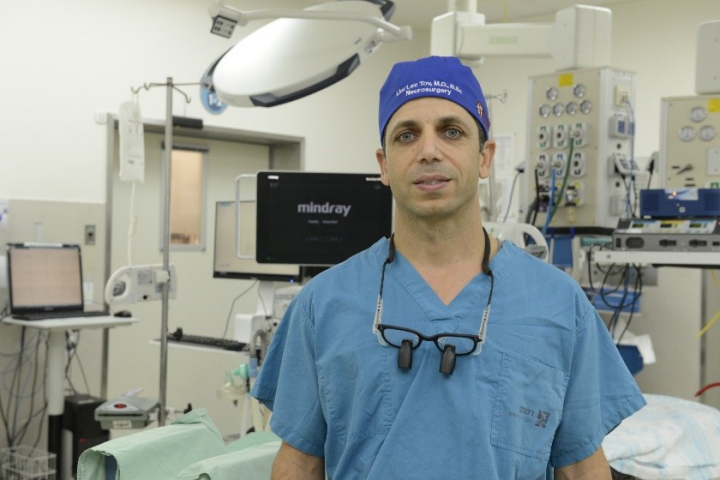A new treatment option for people with severe clinical depression is now available at Rambam Health Care Campus (Rambam) in Haifa, Israel. For patients not responding well to traditional treatments such as medication and therapy, a “pacemaker” can be used to send signals to the brain, effectively treating this type of depression.
 Dr. Lior Lev-Tov.
Photography: Rambam HCC.
Dr. Lior Lev-Tov.
Photography: Rambam HCC.
Dr. Lior Lev-Tov, a senior attending physician in Rambam’s Department of Neurosurgery, recently returned from a three-year clinical and research internship at Stanford Medicine, an internationally renowned medical center in the USA, where he received advance training in Vegus Nerve Stimulation (VNS). Lev-Tov, is now implementing this procedure at Rambam, and it is transforming lives.
Studies show that over 30 percent of patients with clinical depression do not respond well to medication and therapy, seriously affecting their quality of life and increasing the suicide rate in this category.
Most people know that their nerves do far more than convey a message of pain to the brain. However, less known is that the body’s two vagus nerves, which run from the brain to the large intestine on either side of the body, play a role in regulating mood, as well as bodily functions such as heart rate and digestion. Hence, vagus nerve stimulation (VNS) can help regulate mood and improve symptoms of depression. An innovative, internationally accepted, effective, and safe treatment, VNS – using a vagal pacemaker – is now available at Rambam.
Lev-Tov explains, “This is an effective and safe procedure allowing the patient to regain control and quality of life. Although results are not immediate, there is less suffering, and quality of life is restored. VNS allows psychiatric patients with clinical depression to rehabilitate and manage their conditions.”
Patients with resistant epilepsy are already being successfully treated with VNS. But now its use can be extended to depression. The vagal pacemaker, implanted subcutaneously in the patient’s chest, connects thin wires to the left vagus nerve. Electrical signals are transmitted from the wires to the nerve, which then conveys them to the brain. Brain connectivity — communication between different brain areas – is altered, affecting mood and depression.
The Department of Neurosurgery at Rambam, the largest referral hospital in Northern Israel, provides the most advanced treatments to patients requiring neurosurgery and suffering from central nervous system pathologies. The department is a leader in treating and managing all neurosurgical fields.

